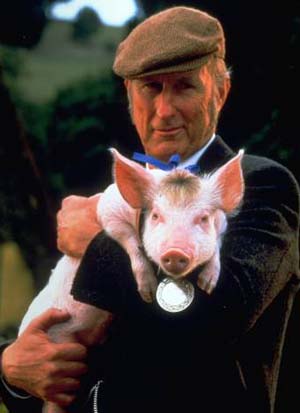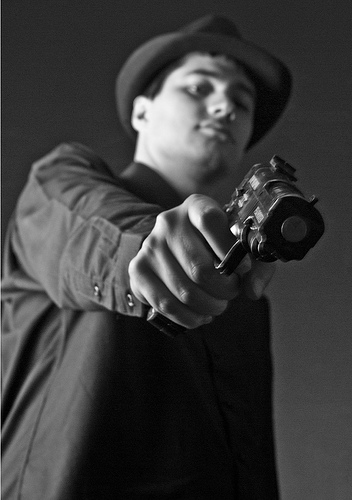Watch Your Tone
Since you need to establish the tone of your book right from the start, I want to spend a little bit of time discussing this element. Tone is a subtle thing, and it overlaps sound, style, and voice. I’ve already discussed voice in an earlier post, and where voice is really generated and inspired by your characters, tone is something more consistent and covers your whole book. Kind of like icing spread over the top of a multiflavor cake—the voice of all your characters being the different flavors.
Give a Feel for How You Feel
Tone really has nothing to do with how you construct a sentence, paragraph, or even chapter. Think of tone as your (the author’s) overall opinion or feeling about your story. Maybe this is confusing, but when you think of the story you are writing, what emotional attitudes come into play? Sarcasm, humor, cynicism, anger, jubilation? If you’re telling a story about oppression and cruelty, is it because you feel passionately about this topic and want people to be moved to take a particular stand? Of course, this doesn’t mean your tone should be inciting a riot. What it does mean is your writing style will convey this feeling you have. Your sentences and scenes will have an undercurrent of seriousness, poignancy, or perhaps intensity. In contrast, if you are writing a lighthearted adventure story, your tone may express humor, flippancy, even a bit of obnoxiousness. What you want is to give a feel for how you feel.
Tone is subjective. It may seem like it’s the same as voice but it’s not. When I think of Kurt Vonnegut’s novels, I can sense his cynical tone splashed with outrageous humor as an undercurrent beneath his voice. Same with Tom Robbins. So, since tone is subjective (implying there’s an author out there with an opinion), you do want to be careful your tone doesn’t come across haughty, know-it-all, pompous, etc. It’s fine to have a character who is pompous, but you don’t want the tone of your novel to be pompous. I hope you can see the difference. I see some first novels where the author has worked really hard to use as many fancy, eccentric, and never-used words as they can in order to impress their readers (they’re not impressed—just irritated). In those cases, the tone of the book gets in the way of the story being told.
Separate Your Tone from Your Characters’ Voices
Now, if you write a book in the first-person POV of a brilliant statesman and he’s telling the story, even though his voice will sound pompous (perhaps), the tone of the book should not. In his thoughts and speech he may use big words, but you as the writer would construct your sentences without all those flowery words. You would build your sentences influenced by how you feel about this character and the story you are telling. That way the tone of that novel will be your subjective tone—not the character’s. If this character is a dark, evil man who did horrible crimes against humanity, your tone will be serious, intense, maybe even a bit objective to give distance and let the reader feel what she may. I hope the tone of this blog post reflects my interest in giving you insight and writing skills!
This week, take a look at the tone of your novel so far and see if you are getting across the subjective mood you intend. Take a look at some novels and see if you can determine what the tone is and share some thoughts in the comments below.












It sounds so obvious after I read this.
Thank you for sharing.
As a musician and writer, this resonates with me. : )
Now I’ll go and read all in this series. I don’t write fiction (that’s the OTHER Beverly Lewis – LOL) but this is well-put and meaningful.
This is one of the best pieces I’ve read lately on tone. It seems like there is a big gray area between tone and voice, but reading this, I now see the light! Thanks. Will be sharing.
I guess I hadn’t really thought of my tone before:( I’ll need to read through my WIP and see what comes across through the pages. Thanks so much for this helpful post!
Another interesting post. Thanks 😀
I think tone isn’t really considered much by writers as they work on their novel, but it is such an important element as it flavors the read. The genre also determines the tone, for a dark satire is going to sound quite a bit different than a chick comedy. Glad the post helps clarify this topic!
Excellent explanation of tone, which can be really hard to get one’s head around! Thanks!
This is exactly what we call Production Design in cinema. The overall look and feel. Same with static artwork and photography. It’s all those subtle elements that combine to evoke a certain mood or feeling.
You can describe a simple scene of a person looking out across a desert landscape, but how that is depicted visually is unlimited through strong or subdued colour, time of day, weather, lighting intensity etc.
How writers achieve this without visual aids, I’m in awe of!
Really useful article on a key critiquing aspect of your novel which can so easily be missed or mangled.
Good information, and also made me thing about how characters need to change during the course of the novel. They need to have learned something.
Informative to say the least. What so many beginning writers fail to take note of and thus practice, are the subleties of storytelling, of which tone is one.
I seem to have a really upbeat tone to everything I write, even when I write something serious. I think if you write first person style books your personality will naturally shine through, giving them their tone.
Tone is definitely not voice–that’s a really fine distinction you make. But it’s a little like voice, or at least voice is one of the devices you use to create tone. Sometimes I think my tone is too dependent on voice. It also depends on what is included or omitted in the perceptions you make available to your reader. Obviously, I need to spend more time thinking about this. Thanks for the insight!
I struggle with not letting my current mood affect my tone. Being a woman, my moods can change greatly from day to day and causes inconsistency in my tone.